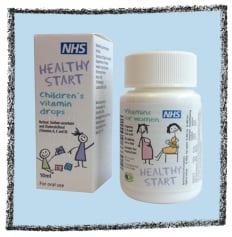The UK ‘Healthy Start’ vitamins scheme was rolled out to provide targeted provision of free vitamin supplements for women and children from low-income backgrounds, by providing beneficiaries with food vouchers and coupons for vitamin supplements.
While the uptake and use of vouchers for food is high, the uptake of free vitamin supplements is more varied, with differences in provision between areas leading to high levels of confusion regarding where Healthy Start vitamins can be accessed, say researchers writing in BMJ Open.
According to the report, which draws on the views of more than 600 health and social care practitioners, the current logistics of the program mean that many of those eligible often miss out on access, while many more who are at high risk of deficiencies are not eligible.
“It was clear from our findings and other research that the current targeted approach is reaching very few of those eligible for Healthy Start or who are at risk of vitamin deficiency,” wrote the team – led by Dr Alison McFadden from the University of Dundee.
“This highlights a disconnect between the aspirations of the national Healthy Start programme and the local logistics of delivering it,” said the team – adding that differences in distribution and implementation of the scheme mean that the current system leads to a ‘postcode lottery’.
As a result, the authors suggest that the current incarnation of the Healthy start scheme represents a ‘missed opportunity’, and that universal access to the program for all expectant mothers and children under the age of five may be the best solution to improving public health outcomes.
“There is wide professional and voluntary sector support for moving from the current targeted system to provision of free vitamin supplements for all pregnant and new mothers, and children up to their fifth birthday,” they wrote.

Poor uptake
According to the study, the uptake of Healthy Start food vouchers that can be exchanged for plain fruit and vegetables, plain cows’ milk or infant formula is around 80%, while the latest available data on the uptake of free vitamin supplements shows that even the highest rates reported were less than 10%.
“The low uptake is confirmed by the latest Infant Feeding Survey which found that 3% of mothers said they had taken Healthy Start vitamin supplements and a further 3% had taken vitamin D supplements during pregnancy,” wrote McFadden and colleagues.
They added that a recent study suggested that low uptake of Healthy Start vitamins was due to lack of awareness of the importance of vitamin supplements among eligible families and some health professionals, lack of motivation to take vitamin supplements and inaccessibility of Healthy Start vitamins.
The new report, which analysed feedback from 669 health and social care practitioners in order to evaluate and provide ‘a real-life view’ of the operation of the Healthy Start vitamins scheme, also found that the low uptake of Healthy Start vitamin supplements for women and children was a priority concern for all, with many citing the prevalence of vitamin D deficiency as particularly significant.
“One recurrent theme was that many women and children who would benefit were ineligible for Healthy Start,” wrote the authors. “Furthermore, applying the Healthy Start eligibility criteria to vitamin supplements was felt to undermine local health promotion efforts because it appeared to link vitamin D deficiency with poverty and poor diets.”
Free for all
Furthermore, the team reported that experience showed the Healthy Start vitamin distribution as logistically complex, requiring the time, resources and creative thinking of a range of local and regional practitioners from senior strategists to administrative support workers.
“In the light of this, many participants argued that moving to universal provision of vitamin supplements would be more cost-effective than the current system,” they said – noting that participants had pointed out that the cost of the admin that goes into deciding who can and can't have them is more than the cost of providing supplementation to all pregnant women.
In addition McFadden and colleagues reported that many participants also felt there should be more accessible distribution outlets.
“In particular, it was emphasised that vitamin supplements should either be given out routinely by midwives and health visitors, or they should be widely available at places where women go regularly: for example, supermarkets, pharmacies, children's centres and GP practices.”
Participants also suggested separating the food voucher and vitamin supplementation components of the Healthy Start scheme – suggesting that the means tested eligibility criteria for food vouchers miss many of those at risk of vitamin D deficiency.
Citing the findings of a previous trial policy in Birmingham, UK, which provided free Healthy Start vitamins for all pregnant women, breastfeeding women, and young children, the team noted that uptake rate was found to be 17% and had ‘more importantly’ reduced the cases of symptomatic vitamin D deficiency in children by 59%
“These encouraging results from a before and after study suggest that universal provision of vitamin supplements is potentially a cost-effective public health intervention,” they concluded.
Source: BMJ Open
Published online, open access, doi: 10.1136/bmjopen-2014-006917
“Healthy Start vitamins—a missed opportunity: findings of a multimethod study”
Authors: Alison McFadden, et al
